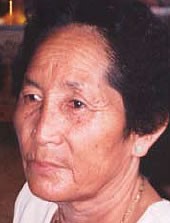Melanau in Brunei

Photo Source:
Copyrighted © 2026
Southeast Asia Link - SEALINK All rights reserved. Used with permission |
Send Joshua Project a map of this people group.
|
| People Name: | Melanau |
| Country: | Brunei |
| 10/40 Window: | Yes |
| Population: | 500 |
| World Population: | 155,500 |
| Primary Language: | Melanau, Central |
| Primary Religion: | Islam |
| Christian Adherents: | 4.00 % |
| Evangelicals: | 2.00 % |
| Scripture: | Portions |
| Ministry Resources: | Yes |
| Jesus Film: | No |
| Audio Recordings: | No |
| People Cluster: | Borneo-Kalimantan |
| Affinity Bloc: | Malay Peoples |
| Progress Level: |
|
Introduction / History
The Melanau are considered among the earliest settlers in Sarawak. The name Melanau was not used by the Melanau to refer to themselves until recently. They call themselves a-likou meaning 'people of the river'. Legend has it that the name Melanau was given by one of the Sultans of Brunei to the inhabitants of the coastal swamp flats and riverbanks of central Sarawak.
The Melanau live in a low-lying swampy plain covered by dense tropical forest in the coastal region of Sarawak. They are mostly located in and near the towns of Mukah, Matu, Daro, Dalat, Bintulu, Kanowit, and Sibu.
Because of their group affiliation, Melanau derive their identities through people such as parents, friends, relatives, and teachers. The self is a part of the community, the family, the clan, the village, and the bureaucracy. A person's family is the primary unit that defines Melanau roles, responsibilities, and status in the community.
The Melanau language consists of various dialects. However, most of the Melanaus use the dialect from the Mukah area to communicate with those from other dialects.
Most live in Malaysia, but a small number are in Brunei.
What Are Their Lives Like?
Melanaus are mostly farmers, fishermen, sago producers, and traders. Cultivation of sago palm, wet rice, coconut, and rubber supplements their economy. They are also regarded as being fine boat-builders and fishermen. They consider education a priority, and some Melanau have thrived in politics, business, and public life. The Melanau are described as open, friendly, outgoing, and non-aggressive people. They value their relationships with friends and family members. Gotong-royong 'mutual assistance' is still practiced, especially during weddings, funerals, and farming. Whenever someone dies, the dead person's personal belongings are buried together with the body. The peligin 'mourning period' usually lasts almost a month. Intermarriage among those of different religious beliefs is common and accepted.
What Are Their Beliefs?
Modern Melanau are the most religiously diverse and tolerant community in Sarawak. It is normal for the Christians, Muslims, and Animists to live peacefully in one place or community. They respect one another's beliefs and even celebrate one another's feasts and festivities.
Traditional beliefs and practices continue to flourish among the people. A shaman can be either a man or woman who is thought to be "a master of spirits." The Melanau still seek help from a shaman if they are sick or bothered by spirits. One Melanau celebration is the Kaul festival, which includes a ceremony to appease the spirits of the sea, land, forest, and farm.
What Are Their Needs?
Many of the Melanau need better fishing techniques in order to sustain an adequate income in the fishing industry. They have great potential for tourism considering their rich culture and natural environment. Many Melanau still lack access to the good news.
Prayer Points
Pray for people skilled in modern techniques in fishing to help the Melanau people improve their livelihood.
Pray that believers will commit to sharing the good news in a language that is most appropriate for them.
Pray for their churches to make a point of reaching the frontier peoples in Brunei.